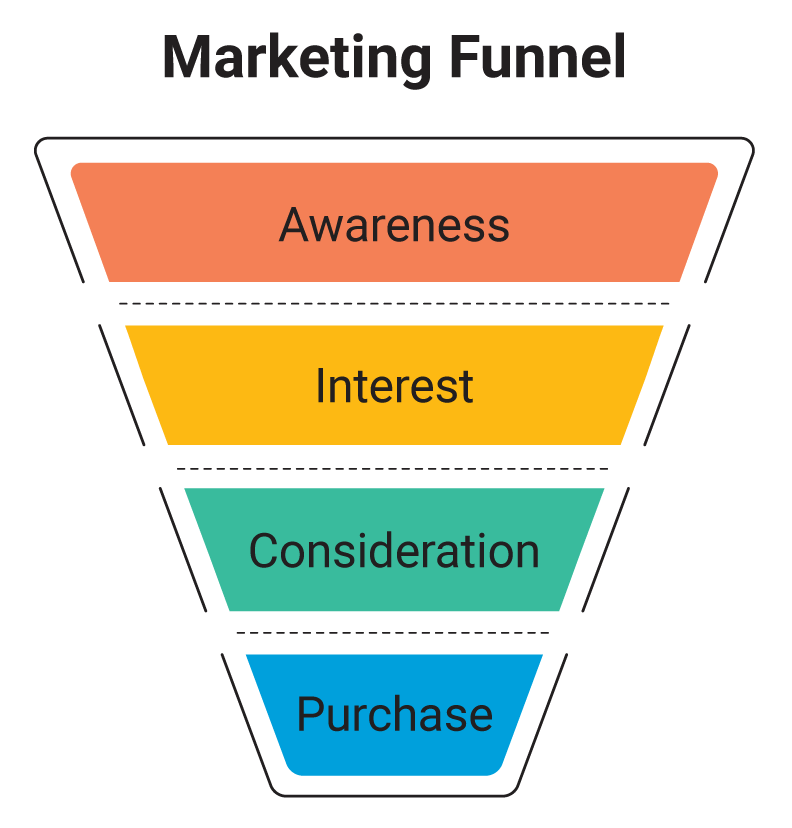You’ve heard that in order to find new customers, you first need to market your business. This is how you let potential customers know that you exist.
That said, there are many different types of marketing that exist, like:
- Traditional marketing
- Digital marketing
- Word of mouth marketing
- Email marketing
- Brand marketing
- Inbound and outbound marketing
One popular form of marketing that many businesses use is content marketing. But what is content marketing? And how can it bring value to your business?
An example of content marketing
The traditional definition of content marketing is, “A strategic marketing approach focused on creating and distributing valuable, relevant, and consistent content to attract and retain a clearly defined audience and, ultimately, to drive profitable customer action.”
In other words, content marketing is a way to give your potential customers valuable information in a consumable form such as written, images, or video.
As you can imagine, this covers a broad landscape of marketing forms. Need an example of content marketing? Here are a few:
- Blogs
- One of the most widely recognized examples of content marketing, blogs tend to be written as a form of education for your audience. Written to contain a few hundred up to a few thousand words, blogs are a single scrollable page that individuals can read all at once without having to click or navigate to a different space. Some blogs allow engagement from your audience in the form of comments and feedback. This is a totally free form of content marketing allowing you to educate or share opinions.
- Video
- Perhaps one of the biggest rivals of written content is video content. This type of content is anything that appears for its intended audience in the form of video. It can be found on video dependent sites like YouTube or it can be uploaded to websites or social media. An example of content marketing in the form of video is a live or pre-recorded webinar or workshop. Additional examples include testimonial videos from customers or recorded education videos you share with your audience to help them better understand your products or services.
- Website
- A lot of businesses don’t realize that this is a form of content marketing. That said, it’s one of the most powerful forms of content marketing that you can have. Consider that a website can tell your leads everything they want or need to know about your business—from how it started to what you sell. Well-written content for your website along with thoughtful visuals like photos of your team members, products, and even customers, will help you build a connection with leads, potentially turning into a sale. As one of the most inexpensive and accessible forms of content marketing a business can have, you’d be unwise to go without one.
- Need help building a website? Learn more about Data Axle™ Local Results.
- Case Study
- Traditionally, a case study is a written form of content around a particular person or group of people examining a specific element. A business may use a case study to showcase how their product or service benefited one of their customers, using it as a way to encourage leads to try the products or service for themselves. Some case studies are extremely long and in-depth while others are high-level and brief.
- Infographics
- Chances are you’ve seen one of these floating around online, though you may not have known what it was called at the time. An infographic is a form of content marketing that contains images or charts, often with very few written words, to explain something.
- As an example, if you are a business that caters to travel nurses, you may create an infographic around the process of becoming a travel nurse.
- Here is an example of an infographic pertaining to data.
- Online workshops and courses
- This video form of content marketing offers a way for your business to teach a lot of information in an organized format. Your leads may access this information using their phone, tablet, or computer. Online workshops and courses can be live or pre-recorded and also will often offer written transcripts or a workbook and links to an example of what is being taught.
- Email marketing
- Another written form of content marketing, email marketing is a way to connect with your audience via their inbox. Emails can be long or short. Some contain segments of content while other email content consists of a single column. Email marketing may also include video and images in addition to the written content.
- Quizzes
- Another written form of content, a quiz doesn’t instill the dread in your audience that such a thing perhaps contained for you in high school! Designed as a way to test the knowledge of your audience about a certain topic, quizzes are not only great for your content marketing efforts, they’re also good for lead engagement. Allowing for infinite leads to participate, quizzes may help you gain valuable insights into your audience which can help you target future content to serve them better.
- Podcasts
- We’ve talked at length about written and video/image examples of content marketing. But there is yet another example of content marketing that we haven’t yet covered! Podcasting is a form of content marketing wherein only your voice is used. Individuals may record multiple sound files as a series to be made available daily or weekly over an extended period of time. A podcast might also offer multiple seasons—as with a t.v. show—if the host has a lot of information or knowledge to share with their audience.
Of course, this is not an exhaustive list of content marketing examples! Some additional forms of content marketing your business can use includes:
- Social media
- Applications
- White papers
- eBooks
- Slide shares
- Brochures
- Product demos
Why your business needs content marketing
It’s one thing to give you an example of what content marketing consists of. However, perhaps more important than what content marketing is, is why your business should make a habit of creating it.
To explain this, let’s discuss a slightly more advanced topic: the marketing funnel. There are varying lengths of marketing funnels that exist but they all contain the following four stages: Awareness, Interest, Consideration, and Purchase.

Awareness: If you envision a funnel, Awareness would be at the top—the widest point. This is the stage where you draw in new leads (potential customers) usually through things like marketing campaigns, content marketing, and even their own research or curiosity based on their search results. Think email, direct mail, online advertising, social media, blog posts, testimonials, case studies, quizzes, and freebies or giveaways.
Interest: Living a quarter of the way down your marketing funnel, this is the stage where potential leads learn more about your business as well as your products and services. These leads have usually also offered ways to connect with them—for instance, they’ve given you their email address in exchange to receive email marketing from you such as your weekly newsletter.
Consideration: Now we’re getting into the narrower part of the funnel. Many of the leads that came in, in the Awareness and Interest stages have disappeared. However, the customers that remain are likely to be highly interested in what you offer. These prospective customers should receive highly targeted content marketing with an intent to sell. Free demos and free trials, testimonial video from past or existing customers, and even special offers are great ways to provide content marketing at this stage.
Purchase: At the bottom of your funnel are paying customers. This is the last stage of the funnel, and the part every business craves the most! After all, paying customers are the reason you have a business at all. But just because a customer pays for your product or service doesn’t mean the content marketing is done. By offering a positive purchase experience as well as meaningful content marketing (ex: a thank you message or video, follow-up surveys) you potentially retain those customers and encourage them to purchase from you again.
In other words, content marketing is a way to build trust and relationships with your leads. And with so many ways to provide your audience with content marketing, there is sure to be a form you enjoy creating for them as much as they’ll enjoy consuming it!






